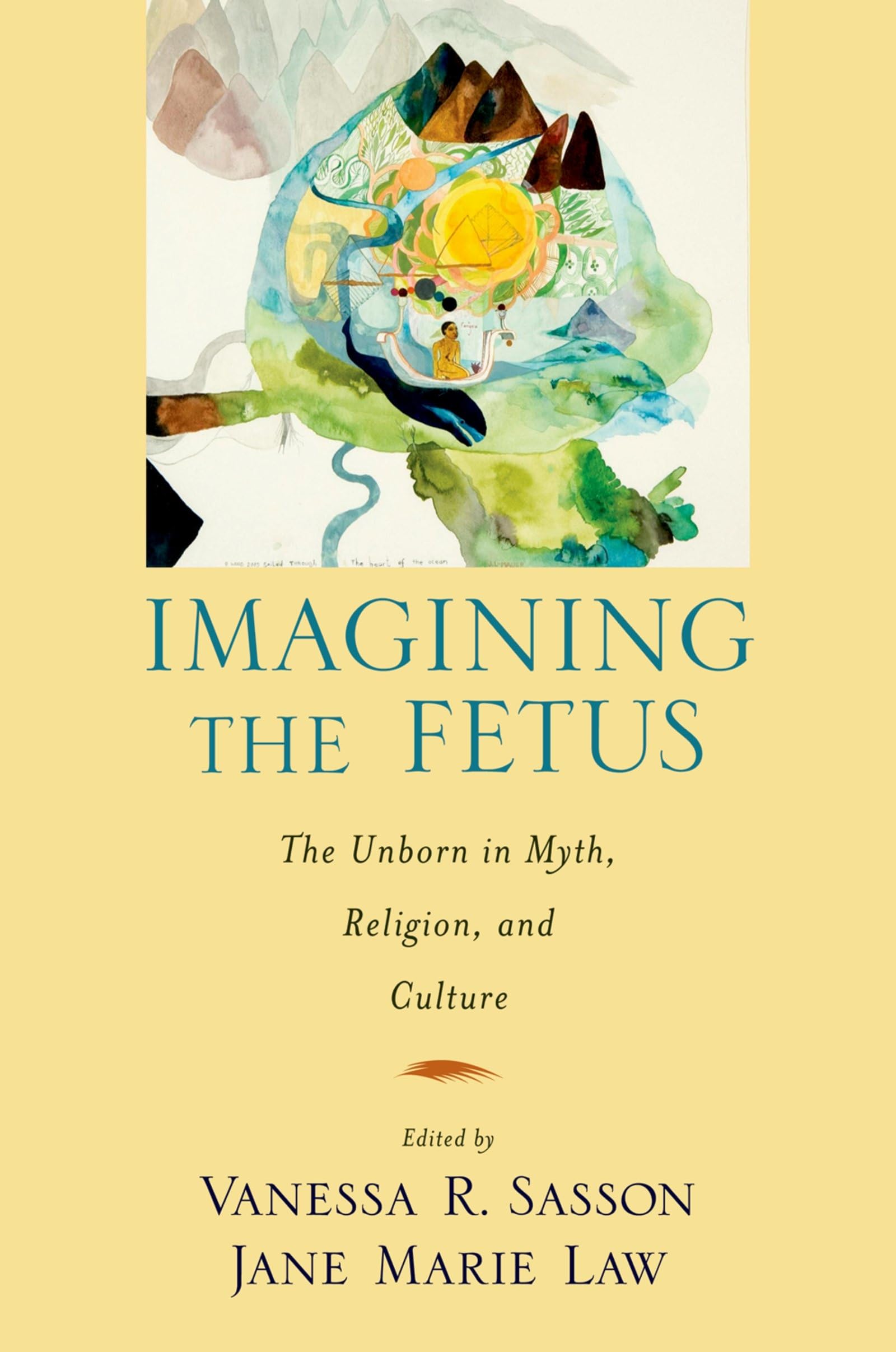
Title

Imagining The Fetus (American Academy Of Religion Cultural Criticism Series)
Delivery time: 8-12 business days (International)
In Contemporary Western Culture, The Word Fetus Introduces Either A Political Subject Or A Literal, Medicalized Entity. Neither Of These Frameworks Does Justice To The Vast Array Of Religious Literature And Oral Traditions From Cultures Around The World In Which The Fetus Emerges As A Powerful Symbol Or Metaphor. This Volume Presents Essays That Explore The Depiction Of The Fetus In The World'S Major Religious Traditions, Finding Some Striking Commonalities As Well As Intriguing Differences. Among The Themes That Emerge Is The Tendency To Conceive Of The Fetus As Somehow Independent Of The Mother'S Body As In The Case Of The Buddha, Who Is Described As Inhabiting A Palace While Gestating In The Womb. On The Other Hand, The Fetus Can Also Symbolically Represent Profound Human Needs And Emotions, Such As The Universal Experience Of Vulnerability. The Authors Note How The Advent Of The Fetal Sonogram Has Transformed How People Everywhere Imagine The Unborn Today, Giving Rise To A Narrow Range Of Decidedly Literal Questions About Personhood, Gender, And Disability.
By changing our most important processes and
products, we have already made a big leap forward. This ranges from the
increased use of more sustainable fibers to the use of more
environmentally friendly printing processes to the development of
efficient waste management in our value chain.
⚠️ WARNING (California Proposition 65):
This product may contain chemicals known to the State of California to cause cancer, birth defects, or other reproductive harm.
For more information, please visit www.P65Warnings.ca.gov.
Shipping & Returns
Shipping
We ship your order within 2–3 business days for USA deliveries and 5–8 business days for international shipments. Once your package has been dispatched from our warehouse, you'll receive an email confirmation with a tracking number, allowing you to track the status of your delivery.
Returns
To facilitate a smooth return process, a Return Authorization (RA) Number is required for all returns. Returns without a valid RA number will be declined and may incur additional fees. You can request an RA number within 15 days of the original delivery date. For more details, please refer to our Return & Refund Policy page.
Shipping & Returns
Shipping
We ship your order within 2–3 business days for USA deliveries and 5–8 business days for international shipments. Once your package has been dispatched from our warehouse, you'll receive an email confirmation with a tracking number, allowing you to track the status of your delivery.
Returns
To facilitate a smooth return process, a Return Authorization (RA) Number is required for all returns. Returns without a valid RA number will be declined and may incur additional fees. You can request an RA number within 15 days of the original delivery date. For more details, please refer to our Return & Refund Policy page.
Warranty
We provide a 2-year limited warranty, from the date of purchase for all our products.
If you believe you have received a defective product, or are experiencing any problems with your product, please contact us.
This warranty strictly does not cover damages that arose from negligence, misuse, wear and tear, or not in accordance with product instructions (dropping the product, etc.).
Warranty
We provide a 2-year limited warranty, from the date of purchase for all our products.
If you believe you have received a defective product, or are experiencing any problems with your product, please contact us.
This warranty strictly does not cover damages that arose from negligence, misuse, wear and tear, or not in accordance with product instructions (dropping the product, etc.).
Secure Payment
Your payment information is processed securely. We do not store credit card details nor have access to your credit card information.
We accept payments with :
Visa, MasterCard, American Express, Paypal, Shopify Payments, Shop Pay and more.
Secure Payment
Your payment information is processed securely. We do not store credit card details nor have access to your credit card information.
We accept payments with :
Visa, MasterCard, American Express, Paypal, Shopify Payments, Shop Pay and more.
Related Products
You may also like
Frequently Asked Questions
- Q: What is the main theme of 'Imagining the Fetus the Unborn in Myth, Religion, and Culture'? A: The main theme of the book is the exploration of how various religious traditions depict the fetus, highlighting both commonalities and differences in their symbolism and metaphorical significance.
- Q: Who is the author of this book? A: The book is authored by Vanessa R. Sasson.
- Q: What type of binding does this book have? A: This book is available in paperback binding.
- Q: How many pages does the book contain? A: The book contains a total of 305 pages.
- Q: When was 'Imagining the Fetus' published? A: The book was published on December 12, 2008.
- Q: What category does this book belong to? A: This book belongs to the category of Comparative Religion.
- Q: Is this book suitable for academic study? A: Yes, the book presents scholarly essays that can be beneficial for academic study in religious, cultural, and ethical discussions regarding the fetus.
- Q: What are some themes discussed in the book? A: Some themes include the independence of the fetus from the mother's body, cultural symbolism of vulnerability, and the impact of fetal sonograms on modern perceptions of the unborn.
- Q: Does the book address contemporary views on personhood? A: Yes, the book discusses how advancements such as fetal sonograms have influenced contemporary debates about personhood and related issues.
- Q: Is there a specific audience for this book? A: The book is aimed at readers interested in religion, culture, ethics, and those seeking a deeper understanding of the conceptualization of the fetus across different traditions.
